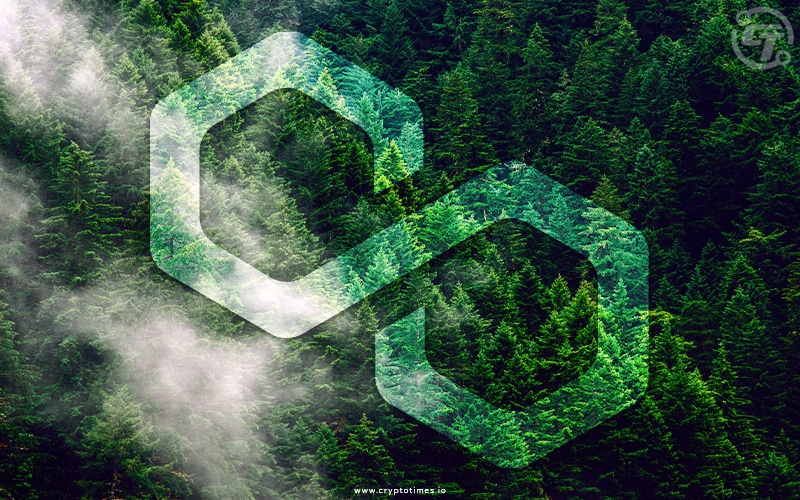Formerly known as Matic, Polygon, announced that its network has achieved carbon neutrality by partnering with KlimaDAO by retiring $400,000 in carbon credits representing the entire CO2 emitted since the blockchain’s inception.
In Brief:
- Offsetra and KlimaDAO carried out the first phase of Polygon’s commitment to sustainability.
- The retired $400,000 in carbon credits represent 104,794 tonnes of greenhouse gases.
- Polygon is also auditing its carbon footprint with the Crypto Carbon Ratings Institute (CCRI).
The homegrown blockchain collaborated with the decentralized collective of environmentalists, developers, and entrepreneurs–KlimaDAO. With the help of Offsetra, KlimaDAO carried out the first phase of Polygon’s commitment to sustainability.
Polygon has ensured that every transaction – whether the minting of an NFT or a DeFi trade – is accounted for and its environmental impact is offset by offsetting the network’s historical emissions.
Polygon issued its Green Manifesto in April, pledging $20 million for initiatives that will use Web3 to develop new solutions for on-chain carbon credit retirement.
They aimed to identify emissions hotspots by analyzing the network’s energy footprint. The study looked at emissions from staking node hardware, energy consumption from staking operations, and contracts that interact directly with the Ethereum mainnet.
The network is also auditing its carbon footprint with the Crypto Carbon Ratings Institute (CCRI).
The tokenized credits purchased for $400,000 through the on-chain carbon market and retired represent 104,794 tonnes of greenhouse gases.
All BCT and MCO2 tokenized credits were certified by the International Carbon Reduction and Offset Alliance’s (ICROA) Verified Carbon Standard.
Sandeep Nailwal, co-founder of Polygon said, “Reaching carbon neutrality is an important first step, but there is more work ahead. Polygon will lead the way as the whole industry moves toward becoming a net positive for the environment.”
Polygon also collaborated with KlimaDAO on other projects:
- The Belize Bull Run Forest Conservation Project, which protects pine forests.
- The Ghani Solar Power Project, a 500-megawatt renewable electricity generation project in India that is expected to save 887,800 tonnes of greenhouse gas emissions per year.
- A wind power project built for vaccine manufacturer Serum Institute of India in Jaibhim, India.
- Moss.Earth, which uses its MCO2 token to fund Amazon conservation.
Also Read: Hyderabad Based Startup Launches India’s 1st Carbon Offset NFT
KlimaDAO spokesperson Archimedes stated, “It’s absolutely paramount that we continue to work together to advance the on-chain carbon market and establish KlimaDAO and Polygon as the leading innovators in this space.”
Polygon will host The Green Blockchain Summit on July 13th, which will bring together founders, operators, investors, academics, and others from Web3 to establish standards and best practices in the Green blockchain space.






